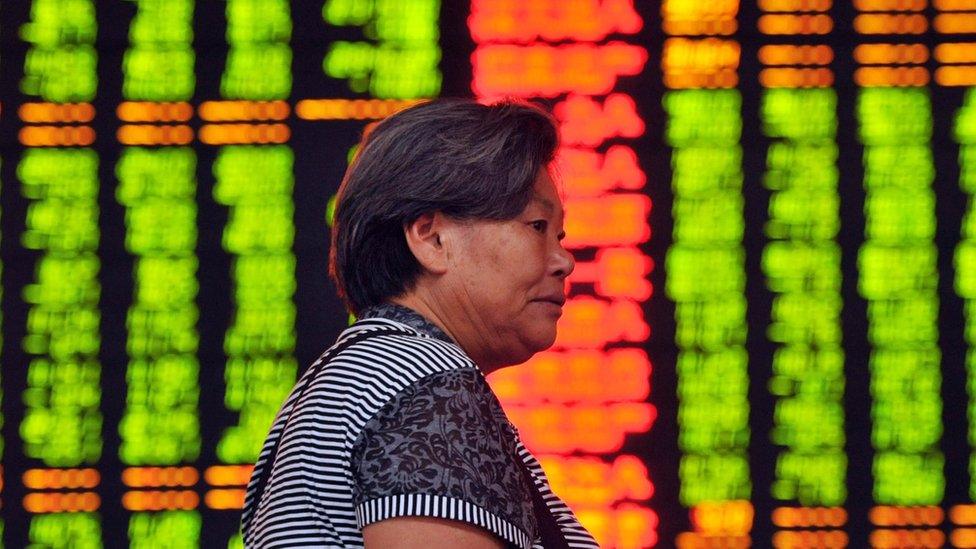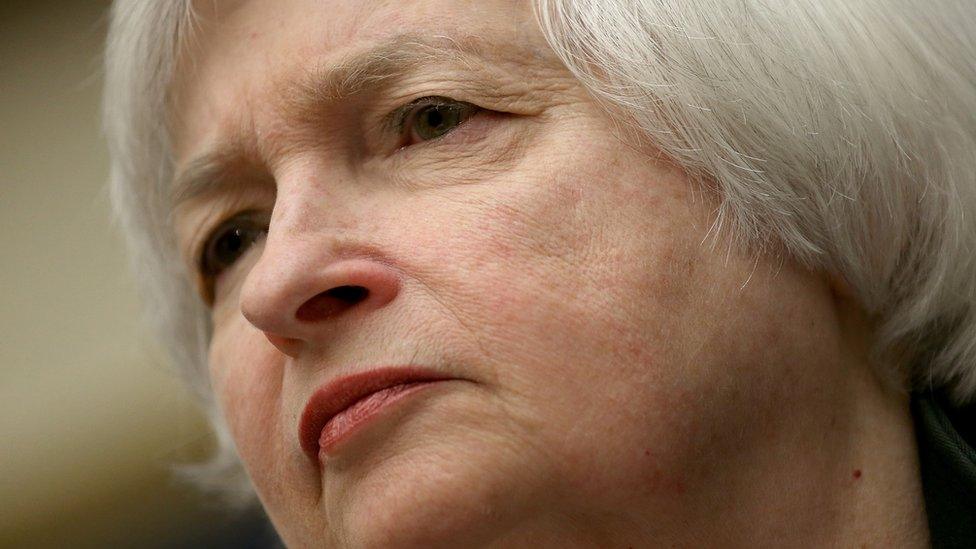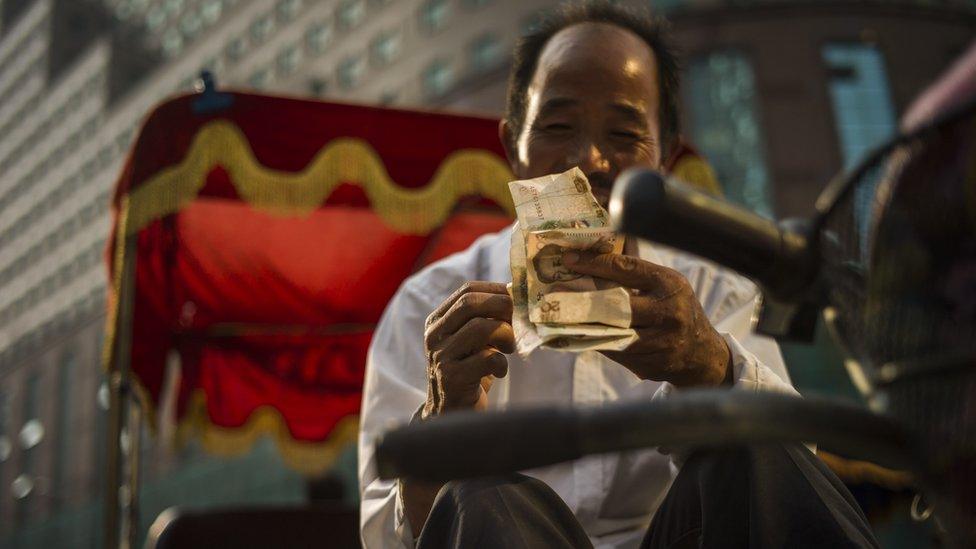How worried should we be about Chinese share price falls?
- Published

An investor in Hangzhou in Eastern China as share prices went down 8.49 percent
Chinese shares fell by almost 9% overnight, alongside another broad sell-off across Asia. Global stock markets suffered their worst week in years last week and, so far, Monday has provided no respite.
The immediate catalyst for China's fall was the lack of a government policy response over the weekend. Investors - both Chinese and foreign - have come to believe that the Chinese government will support prices in the market, and so far they have been right.
Previous sharp sell-offs have been met with a strong response by essentially banning large institutions from selling to interest rate cuts.
The lack of a response could be taken as either a bad sign (that China is running out of policy tools to respond, potentially damaging the credibility of a government that has staked a lot of on its rising market) or as a good one (that the government's commitments to market reform are real and are going to stop trying to manipulate their market).
Although either way, it's not good news for those who have bought Chinese equities which they thought were underpinned by a "Politburo Put".
For years the more cynical investors in the US have believed in a "Greenspan Put", a "Bernanke Put" and perhaps now a "Yellen Put" - all named after successive chairs of the US central bank.
A put option is a financial derivative which protects investors against a fall in share prices: the belief of some is that the US Federal Reserve will act to prop up markets in tough times - essentially providing a free put option and covering investors' downside and limiting any losses.

Janet Yellen, chair of the Federal Reserve, will decide whether to raise US interest rates on 17 September
Stepping back, the economic significance of China's collapsing stock market should not be over exaggerated. The country's financial markets are still relatively closed, limiting the direct cross-border impacts.
But behind the stock market collapse is a seriously slowing economy and the impact of that overseas is a lot more serious.
Still, with many in the markets always on the look out for "the next 2008", it's worth noting that this probably isn't it (and if it is, do feel free to tweet this blog post at me continually for the rest of my career).
As I wrote last week, the big structural drivers of emerging economy growth appear to be slowing or reversing.
Growth - and emerging market asset price returns - are likely to have to be weaker in the years ahead.
With emerging economies representing half of the global economy - and providing around 80% of global growth in the last few years - that matters.
And with corporate revenue growth at many large Western firms being driven by increased sales in the developing world, that slowdown will hit their profits and hence Western stock markets.
But the immediate economic fall out is more containable. Lower asset prices (making it harder for firms to raise money for investment) and lower export growth will slow Western growth.
But that impact could be at least partially offset by much lower commodity prices (and weaker emerging economy growth means a much lower price for oil, copper and the all rest) which means lower prices for things like petrol, boosting household incomes and allowing interest rates to stay lower for longer.

A slowdown could have a profound effect on living standards
There is a worry that weaker growth and weaker currencies across particularly Asia could export deflation to the West.
That is a risk worth watching, although as long as wage growth in the developed countries continues at a decent clip, it is a manageable one.
You can't have a negative (and damaging) process of wage-price spirals if wage growth remains healthy.
A long lasting emerging economy slowdown would have profound impact on the world economy.
It will obviously have a major effect on the living standards of the billions of people who live in those economies.
But in the West, this isn't a 2008-style crisis but a stage in a ongoing process of the global economy being reshaped.
Still, the turbulence in the US markets may be enough to prevent the Federal Reserve from raising US interest rates in September. In which case there will be some who, rightly or wrongly, begin talking about a "Yellen put".
- Published17 August 2015
- Published11 August 2015
- Published16 April 2015
- Published2 March 2015